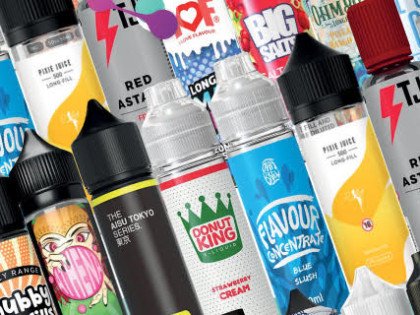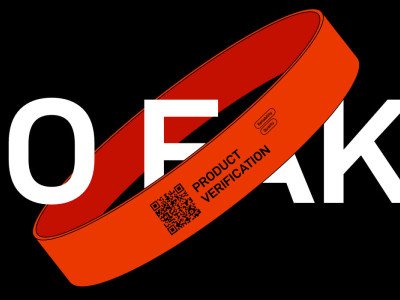A BBC report covered health campaigners’ demand on the Government. It referenced Action on Smoking and Health (ASH) spokesperson Hazel Cheeseman calling on the current administration to, “Ban free samples and sales to under-18s, introduce limits on strength and to restrict marketing of the pouches.”
The New Nicotine Alliance commented: “Although the lack of an age limit for pouch sales is not technically a loophole, it is merely that one has not been set as pouches have been regulated under General Product Safety Regulations and do not have their own regulatory framework, the NNA welcomes some of the proposals publicised by the BBC.
“We wrote to Health Secretary, Matt Hancock, in February and August, 2020, and again to Public Health Minister, Jo Churchill, in January 2021 on the subject of nicotine pouches regulation. Our letters emphasised the significant potential benefits of nicotine pouches but observed that there was a need to install regulations in order to clamp down on ‘unscrupulous sellers in the UK who are acting recklessly.’
“We also noted that although ‘there is no evidence that currently these nicotine pouches are in the hands of under 18s’, it is necessary to put in place a minimum age of sale to pre-empt any difficulties that could arise in the absence of clarity that the products are intended for adults who wish to use a safer nicotine product.”
The New Nicotine Alliance suggested it is of a benefit to the government to instruct the Committee on Toxicity (COT) to conduct a full toxicological study in order to assess the potential benefit of nicotine pouches in the same way as it has done for vaping and heated tobacco products.
“The report has now been commissioned and a first draft statement was published in July this year. The same process is happening in Germany where the BfR (German Risk Institute) has conducted a toxicological assessment of pouches which produced positive conclusions,” continued the consumer group.
“We would also agree that there should be a stated limit on the strength of nicotine pouches, and also a standard measure for consumers to understand what strength of product they are purchasing, as currently different manufacturers convey the product strength in different ways.
“We understand that nicotine strength is not the only factor in how consumers can safely ingest nicotine from snus and non-tobacco nicotine pouches, and that quality of manufacture and ingredients also play a part, but until a more sophisticated regulatory assessment of all these factors can be put in place, a set limit can act as a sensible barrier to help remove unregulated and irresponsible online sellers from the market.
“Our friends at ETHRA tell us that there is already a precedent for this in Europe. In October, the Slovak Parliament unanimously approved a bill regulating nicotine pouches. The bill introduced a definition for nicotine pouches, regulated their composition, assigned health warnings and determined a nicotine limit of 20 mg/pouch, amongst other measures.”
The New Nicotine Alliance does not agree with proposals to ban samples. It believes they are a useful method of encouraging smokers to switch to pouches if they are not going to switch to vape products or quit in another fashion.
“Action on Smoking and Health’s latest report on e-cigarette use in Great Britain found that only 3.9% of the public have ever tried a nicotine pouch. If we are to genuinely move towards Smokefree 2030, it is important that all reduced risk options of nicotine delivery are known to the public and it serves no good purpose to ban advertising for them while over 14% of the adult population still smokes.
“In letters we have sent to the Department of Health detailing our overall strategy towards harm reduction in the UK, and also to the recent Khan Independent Tobacco Review, we have suggested establishing ‘a proportionate regulatory regime for nicotine pouches and other non-tobacco oral nicotine products based on consumer welfare and protection.’
“It is good to see some of our long-held suggestions on nicotine pouches regulation being taken up by health groups, but it is important that the government does not go too far and over-regulate to the point that potential benefits of the products are lost.”
References:
- The New Nicotine Alliance – https://nnalliance.org/
Dave Cross
Journalist at POTVDave is a freelance writer; with articles on music, motorbikes, football, pop-science, vaping and tobacco harm reduction in Sounds, Melody Maker, UBG, AWoL, Bike, When Saturday Comes, Vape News Magazine, and syndicated across the Johnston Press group. He was published in an anthology of “Greatest Football Writing”, but still believes this was a mistake. Dave contributes sketches to comedy shows and used to co-host a radio sketch show. He’s worked with numerous start-ups to develop content for their websites.
Join the discussion
Harm Reduction For The Rich
The United Kingdom risks becoming a harm reduction country only for the wealthy, according to Michael Landl of the World Vapers’ Alliance
Longfills as an Alternative to Disposables
The disposable vape ban will impact many people, but there’s no reason to be concerned… Grab yourself a pod kit and a Longfill and you’ll be back to vaping the way you want to, just in a cheaper, more environmentally friendly and legal way.
COP10 is a Threat to Safer Nicotine Products
The EU obscures its position on low-risk alternatives to smoking before the WHO COP10 conference in Panama, starting Monday
Nicotine Is Not A Culprit
Planet of the Vapes has always encouraged smokers to use the quit product that works best for them, and snus is a product that seems to be unfairly blocked because it contains nicotine








-listing400.jpg)


